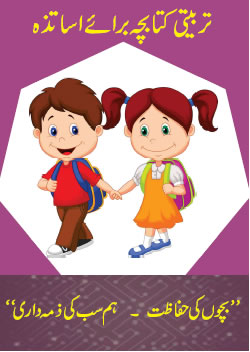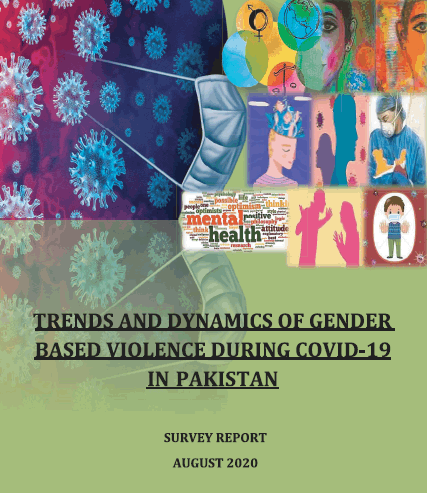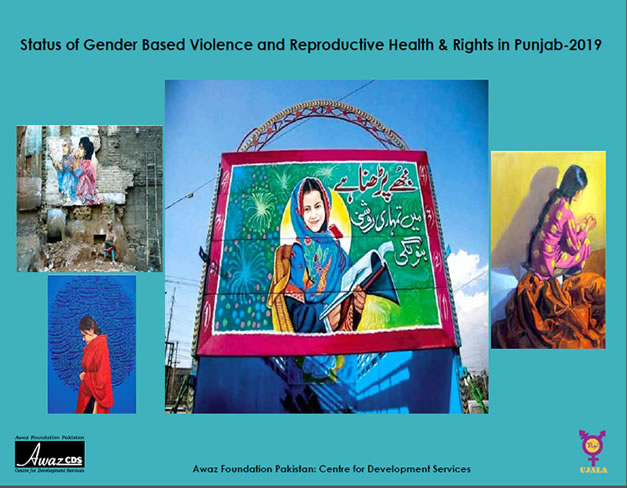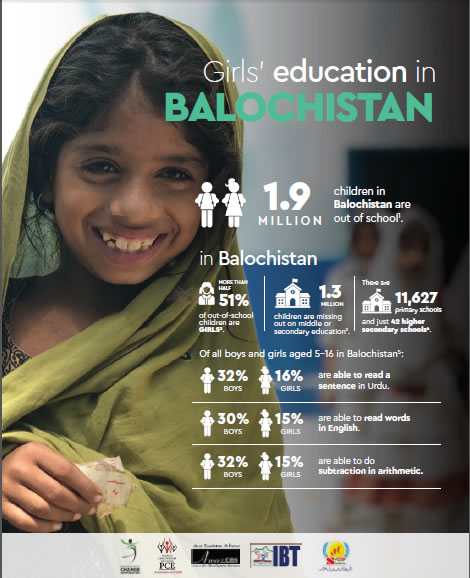Category Archives: Publications
Trends and Dynamics of Gender Based Violence during COVID-19 in Pakistan
The novel coronavirus that first emerged in Wuhan, China in December 2019 continues to impact the lives of people and is affecting all segments of the population across the world equally. Like in other countries, due to widespread of Covid-19 in Pakistan, owing to several restrictions imposed economically and socially, there is an exponential increase in the level of stress among people. Not only this, but it also has an adverse impact on mental health and overall behavior of people. Several studies across the globe have been conducted on prevalence of anxiety, depression and stress among masses during the period of COVID-19. Different researches have shown that people affected from psychological disorders during Covid-19 period shows symptoms like emotional distress, depression, stress, mood swings, irritability, insomnia, attention deficit hyperactivity disorder, post-traumatic stress and anger. According to UNDP, due to this increased stress caused by COVID-19, cases of violence especially gender-based violence and domestic violence have been raised exponentially at global level. Therefore, AwazCDS decided to conduct a survey to ascertain trends and dynamics of gender based violence during COVID-19 in Pakistan.
SDGs Citizens’ Watch Pakistan Program – Dossier
Pakistan’s response towards its own commitments at global level regarding socio-economic development and political empowerment of its citizens are often not fulfilled at the first place therefore the citizens’ confidence and trust on state institutions is weakening day by day. Since the failure in achieving these commitments do not have any major political implications due to the lack of awareness in masses, therefore the attention as well as investment on these commitments are not set as priorities. Global community is often made satisfied on the progress of these commitments with irrational and tactical excuses. Whereas some of the reasons are really based on logic like in case of Millennium Development Goals (2000-2015) it was said that most of them were not achieved due to war against terror (2000) deadly earthquake (2005) and devastating floods (2010 & 2014). However, the public opinion on the failure of these commitments including MDGs was neither sought by global community nor by the state institutions and civil society organizations. CSOs perspective on the failure of MDGs in response to the final report of Planning Commission of Pakistan was published by AwazCDS/ Pakistan Development Alliance while engaging only with well-informed citizens of Pakistan.
In order to make sure the inculcation and translation of global commitments in to the national priority agendas of the political fraternity as well as state institutions, sensitization of masses and their engagements in accountability processes at home is a must strategy and should be strictly adopted by all. Therefore, AwazCDS/Pakistan Development Alliance always tried to conceive and implement citizens’ centric initiatives. SDGs Citizens’ Watch Pakistan (SCWP) Program was the outcome of Citizens’ Led Mechanism for Voluntary National Review in Pakistan that has generated Citizens’ Voices on Pakistan’s first VNR process and progress on SDGs and was presented at United Nation’s High Level Political Forum in July 2019.
In continuation of such efforts SDGs Citizens’ Scorecard was launched across the country. Citizens’ Scorecard is known as the most effective means of citizens’ engagement for better governance and accountability. Therefore, we decided to use this tool to have better understanding and perception of citizens of Pakistan on the progress of SDGs after the completion of almost first five years of our commitment on agenda 2030 for social transformation. The SDGs Citizens’ Dossier is comprised of results attributed from country’s first ever SDGs Citizens’ Scorecard. This Dossier is a remarkable resource for Parliamentarians, policy makers, academics, private sector and CSOs. The UN agencies and other global and regional institutions and alliances may also refer to this document to have first hand information as well as citizens’ voices on the compliance and progress on commitments made by governments. Details of this SDGs Citizens’ Dossier are also available at SDGs Citizens’ Dashboard @ http://sdgscitizenscorecard.pda.net.pk/
National Assessment of Ehsas Cash Grant Program-LNOB
COVID-19 outbreak was first time experienced in the Wuhan City of China at the end of December 2019. Different steps have been taken worldwide for the control of COVID-19. Even with less resources Pakistan also taken rigorous measures like designed special hospitals, laboratories for testing, quarantine facilities, awareness campaign and lock down to control the spread of virus.
According to the Ministry of Health, Government of Pakistan, the confirmed COVID-19 cases in Pakistan has risen to 277,402 as of 30 July.
Since the outbreak of Corona Virus, Ujala network1 under the aegis of AwazCDS-Pakistan decided to contribute in difficult economic and health pandemic period by running different awareness raising campaigns to educate communities on COVID-19. To provide the financial assistance to deprived segment of the society, Ehsaas Emergency Cash program was launched by the Prime Minister on April 1, 2020 in the context of the economic hardship being experienced by the vulnerable due to the ongoing coronavirus crisis. The financial help under the program was meant to help poor buy rations so that they don’t go hungry during lock down period. The program covered 12 million families; PKRs 12,000 per family was given and worth of PKRs. 144 billion were successfully distributed.
Other emergency responses were also designed, financed and implemented by many people in their private capacity as well as on behalf of hundreds of thousands of NGOs and other private sector organizations across the country.
In this regard AwazCDS-Pakistan and its 44 partner organizations working together in 44 districts across the country including A J & K and Gilgit Baltistan under its Ujala Program decided to divert its resources in to Ujala Corona Emergency Response Program. Apart from mass sensitization campaign through the display of 550 banners, 150 Op-eds’, 150 radio programs, Ujala Partners also did Tehsil level survey with 100 target group in each of their respective districts. The target group was comprised on Women headed families, Person with special abilities, Religious minorities and transgender community, the target group was initially planned with 25 persons against each category from each district. Therefore, altogether 4400 surveys were planned.
Finally, 44 Ujala partners carried out Tehsil level survey in their respective district headquarter to collect basic data on some of the basic indicators included information of Ehsas Cash Grant Program, its process and challenges faced by them. We also tried to understand how much vulnerable groups are aware from Corona virus, their economic challenges, status of behavioral changes, inclusion of most vulnerable groups of society and if elected representatives have played their role in educating and facilitating public. A comprehensive survey format was developed and a half day online capacity orientation on how to conduct the survey was given to all the district focal points of partner organizations.
Facts based booklet on RH&GBV-Balochistan2019
This fact based informative booklet is construed from a study based on primary data gathered from 10 districts of Balochistan that includes Quetta, Pishin,Noshki, Khuzdar, Nasirabad, Jaffarabad, Loralai, Lasbella, Sibi and Kohlu.The study reached out to three core groups, i.e. Adults (including parents, SRHR experts, media personnel, religious scholars, policy makers, transgender individuals and people living with disabilities who were 29years or above); Healthcare Providers and Young People (between the ages of 15 – 29 years).
The study aimed to investigate the knowledge, attitude and behaviors of the communities regarding Reproductive Health Rights and Gender Based Violence. Balochistan based booklet will give an idea on current situation and lead towards a more enabling environment in Pakistan at the levels of policy making and implementation; community acceptance, practice and implementation of SRHR through increased awareness among stakeholders from local government officials, media, religious groups, parents, school community, civil society organizations and parliamentarians.
Facts based booklet on RH&GBV-KP 2019
This fact b ased informative booklet is construed from a study based on primary data gathered from 10 districts of Khyber Pakhtunkhwa that includes Mansehra, Swat,Lower Dir, Kohat, Karak, D.I. Khan, Noshera, Peshawar, Mardan and Bannu. The study reached out to three core groups, i.e. Adults (including parents, SRHR experts, media personnel, religious scholars, policy makers, transgender individuals and people living with disabilities who were 29 years or above); Healthcare Providers and Young People (between the ages of 15 – 29 years).
The study aimed to investigate the knowledge, attitude and behaviors of the communities regarding Reproductive Health Rights and Gender Based Violence. KP based booklit will give an idea on current situation and lead towards a more enabling environment in Pakistan at the levels of policymaking and implementation; community acceptance, practice and implementation of SRHR through increased awareness among stakeholders from local government officials, media, religious groups, parents, school community, civil society organizations and parliamentarians.
Facts based booklet on RH&GBV-Punjab 2019
This fact based informative booklet is construed from a study based on primary data gathered from 10 districts of Punjab that includes Faisalabad,Bahawalpur, Rahim Yar Khan, Chakwal, Lahore, Vehari, Muzaffargarh, Multan, Kasur and Rajanpur.The study reached out to three core groups, i.e. Adults (including parents, SRHR experts, media personnel, religious scholars, policy makers, transgenderindividuals and people living with disabilities who were 29years or above); Healthcare Providers and Young People (between the ages of 15 – 29 years).
The study aimed to investigate the knowledge, attitude and behaviors of the communities regarding Reproductive Health Rights and Gender Based Violence.Punjab based booklit will give an idea on current situation and lead towards a more enabling environment in Pakistan at the levels of policy making and implementation; community acceptance, practice and implementation of SRHR through increased awareness among stakeholders from local government officials, media, religious groups, parents, school community, civil society organizations and parliamentarians.
Facts based booklet on RH&GBV-Sindh 2019
This fact based informative booklet is construed from a study based on primary data gathered from 10 districts of Sindh that includes Mirpur Khas, Thatta, Dadu,Hyderabad, Karachi East, Larkana, Sukkur, Umer Kot, Karachi Central and Sanghar. The study reached out to three core groups, i.e. Adults (including parents, SRHR experts, media personnel, religious scholars, policy makers, transgender individuals and people living with disabilities who were 29years or above); Healthcare Providers and Young People (between the ages of 15 – 29 years).
The study aimed to investigate the knowledge, attitude and behaviors of the communities regarding Reproductive Health Rights and Gender Based Violence. Sindh based booklit will give an idea on current situation and lead towards a more enabling environment in Pakistan at the levels of policymaking and implementation; community acceptance, practice and implementation of SRHR through increased awareness among stakeholders from local government officials, media, religious groups, parents, school community, civil society organizations and parliamentarians.
Fact Sheets on Education – Balochistan
Since 2013, Balochistan has made some progress in curtailing teacher absenteeism, identifying ghost schools and partially
addressing the inequality between the numbers of primary schools and the number of middle and high schools. Between
2011–2012 and 2016–17, the budget for education rose from Rs. 22.66 billion to Rs. 48.61 billion. However, significant
challenges remain.
While the recurrent budget for expenses such as teacher salaries and learning materials has risen each year, the development
budget for infrastructure, missing facilities and teaching materials has declined. The current education development budget
stands at Rs. 6.44 billion against a recurrent budget of Rs. 42.18 billion. Balochistan has also consistently allocated
significantly less to education than all other provinces. Khyber Pakhtunkhwa (KP) has the second-lowest education budget —
but at Rs. 123.07 billion for 2016–17, it dwarfs the Rs. 48.61 billion allocated in Balochistan.









